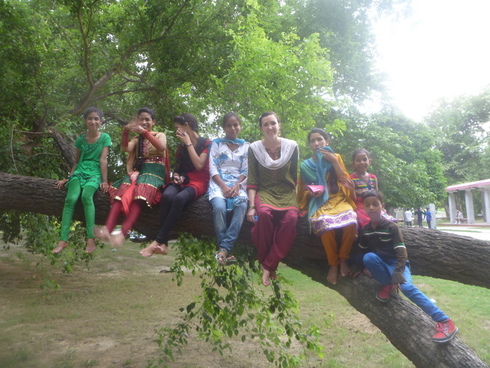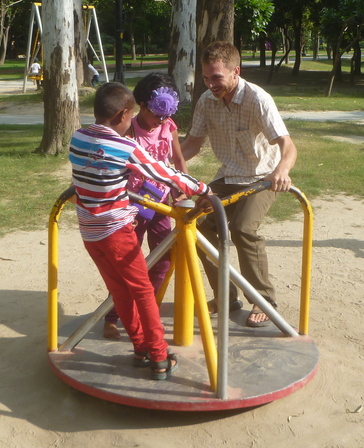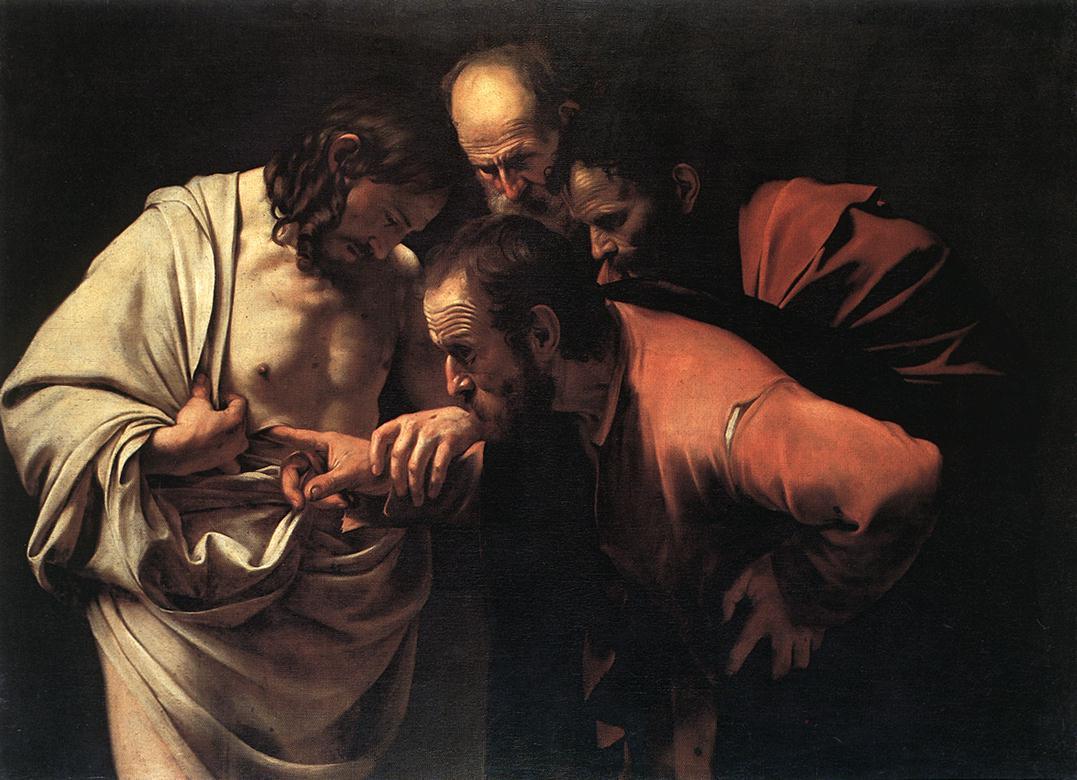As many of you already know, we’ll be leaving India soon. It’s the place I’ve called home for more than two years now, and it’s a place that has gotten under my skin and become part of me forever; changing me irrevocably, mostly for the better. It’s a place that has expanded my capacity for love, and for pain, and it has opened my eyes in ways that perhaps nothing and nowhere else could have. It’s also worn me thin, exhausted me, and very frequently brought me to the end of myself. All of this means that leaving is a very significant event for me: a significant relief, and a significant loss.
I look forward to the season ahead of me, living in my own culture, speaking my own language, and having the space to process many of the things that have arisen within myself while I have been so engaged with the outside world. Thinking about the season ahead and the many welcome changes it will entail has sometimes made it more difficult to face the ongoing challenges of Indian life. But in spite of my hopeful expectations for the future, I feel deeply saddened by the separation that is on the horizon. We’ve begun having conversations with our friends and neighbors about our impending departure, and there have been a lot of tears—theirs, and mine. Outings together or even simple moments spent drinking chai in my friends’ homes have taken on new significance for me. Friends find excuses to come and visit us more often than usual: coming to borrow our rat trap and staying to talk for an hour; coming to practice reading and staying for the afternoon. We know that this moment is all we have.
So in spite of the expected stresses and unpleasant elements of the next few weeks, I have committed myself to trying to remain unconditionally present in order to be available for the unexpected gifts and joys in the next few weeks. The lanky, half-grown monkeys comically wrestling each other on the roof next to mine. The three-year-old boy from downstairs standing in the doorway and gleefully shouting my name at the top of his lungs with a welcoming smile as I come home after a few days’ absence. The buzz of life filtering into my room from all directions: Hindi love songs blaring from downstairs, the hum of the fan stirring the sticky heat from overhead, the crackle of boiling oil from my neighbor’s kitchen, children’s cries and laughter coming in through the window as they fly kites outside.
A few days ago A. and I were on our bicycle, headed to a small café for our date night, when a cool wind kicked up, blowing away the sticky heat of the day. Dark clouds moved in, lush, green foliage swayed and rustled in suspense above our heads, and soon cold rain was pouring down onto us as A. continued to peddle into the storm. We were caught in a monsoon downpour, and we loved it. We enjoyed the novelty of chill bumps on our skin instead of sweat, and the beauty of glistening drops of water dripping down through palm leaves, fruit trees, and other vibrant, jungle foliage. Rain turns the dusty streets instantly to mud, but India is beautiful in the rain. When we arrived at the café, we parked our bike next to the quickly-flooding street and laughed at our thoroughly soaked clothes before heading to the bathroom to wring them out. Date night had turned into an unexpected adventure.
The present isn’t always easy or fun. A lot of the time it can be downright distressing, but I am slowly discovering that the present really is all we have. Future planning and reflection on the past are good and necessary parts of life, but we can so easily fall into living life one step ahead of ourselves (or several steps behind), so that “mental time travel” prevents us from ever truly engaging with life now. It is through choosing to be fully alive to the present moment that we unlock the transformative possibilities of joy as well as suffering, allowing both to become gateways into deeper connection with ourselves, with God, and with the people around us.


